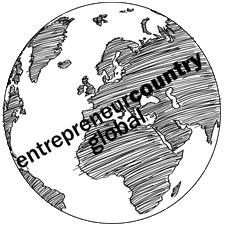Entrepreneur Profile: John Booth, Co-Founder of Midpoint
Midpoint is a fin-tech company that has developed and runs the world's first peer-to-peer international currency payments platform that offers dramatically lower foreign currency exchange costs for both consumers and businesses.
 The FX rate is more competitive than a bank or FX broker and Midpoint matches you with a flat fee dependent on the size of transaction. Midpoint has a US patent on its computerized business method of matching multiple international buyers and sellers who have offsetting needs. Midpoints currently operates in ten currencies, USD, Euros, GBP, Swiss Francs, CAD, AUD, NZD, SEK, DKK & NOK.
The FX rate is more competitive than a bank or FX broker and Midpoint matches you with a flat fee dependent on the size of transaction. Midpoint has a US patent on its computerized business method of matching multiple international buyers and sellers who have offsetting needs. Midpoints currently operates in ten currencies, USD, Euros, GBP, Swiss Francs, CAD, AUD, NZD, SEK, DKK & NOK.
I spoke to the co-founder of Midpoint, John Booth, about his innovation and how businesses like his are offering consumers an alternative to traditional banks.
Tell me a bit about your background and how you became an entrepreneur?
I guess I really started while I was in university. I was studying biology with the goal of becoming an environmental lawyer but was much more interested in business. I got involved in selling customized shirts and sports gear, renting refrigerators and starting a kayaking school – all ways of earning extra money. I then had a student painting franchise the summer before law school, bought a house with the proceeds and rented out rooms during my time as a law student and the following summer started my own painting company outside my previous territory.
Midway through law school I saw sadly how ineffective environmental lawyers were in Canada at the time so I shifted my focus to corporate finance and tax with a view to getting into boardrooms where I thought I could be more effective addressing my environmental concerns.
Where did you get the inspiration for Midpoint?
I was doing some strategy consulting work for the board of one of the big five Canadian banks around Intellectual Property as a capital asset when computerized business methods first became patentable in the United States. I got a call from a friend of mine from undergraduate university days who had been working at Reuters and the Toronto Stock Exchange in new product development. It was December 1998, during the Dotcom one era. Amazon was out there trying to build a business selling books ostensibly because there were no quality control issues shipping books, so we looked for something easier to ship than books and identified digits, or electronic cash. We took a look at the spread in the FX rates and thought that was something which probably could be done much more cost effectively given the opportunity the internet provided to connect people with offsetting needs. I also thought given the size of this opportunity, that it was not going to be around for long so we had better get patent protection on our computerized business method. We therefore filed our patent application in 1999 which was finally granted in the US in 2007.
Can you tell me about the size of the FX market?
The FX market is the largest, most liquid market in the world trading over $5.3 Trillion/day according to the most recent BIS study. It is also highly fragmented with no one central exchange so a very interesting one to apply a matching or netting engine technology platform to.
Do you consider yourself a tech company or marketplace?
A tech company definitely. The peer to peer FX marketplace is just one aspect of our patent. It also covers commodities, derivatives and other asset classes that are bought and sold. The way we will deliver our full FX solution over time also potentially involves several parallel private marketplaces which can then feed each other, so we are really a tech company.
P2P platforms are becoming more and more prevalent, how do you think this is going to affect traditional banks?
Technology is changing banking and financial services on so many levels. Many of the traditional players have so many isolated legacy systems that do not interact properly, that the costs associated with maintaining and integrating them is often much larger than starting from scratch. This provides a tremendous opportunity for Midpoint and other P2P players in loans and other areas. The internet is a great democratizer and at the end of the day much of banking is a utility function which lends itself to automation.
How does Midpoint stand out from the competition?
1. We were the first to take this peer to peer approach in financial services;
2. We are the only one to have a patent and be a true multi-currency, multi-party peer to peer netting platform;
3. We are also the only one that is publicly traded, allowing users to buy shares if they like the proposition, creating a club of user/owners over time;
4. Our clients do not take credit risk on us as they do with other providers;
5. Our clients also do not have to pre-fund, so they get to keep the interest on their float;
What advice would you give to entrepreneurs?
Grow a thick skin, take risk and be tenacious
- Tags: blog, currency, entrepreneurs, exchange, featured, FX, john booth, midpoint, united kingdom
